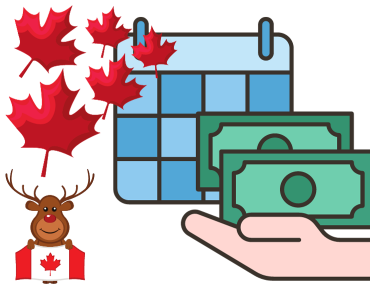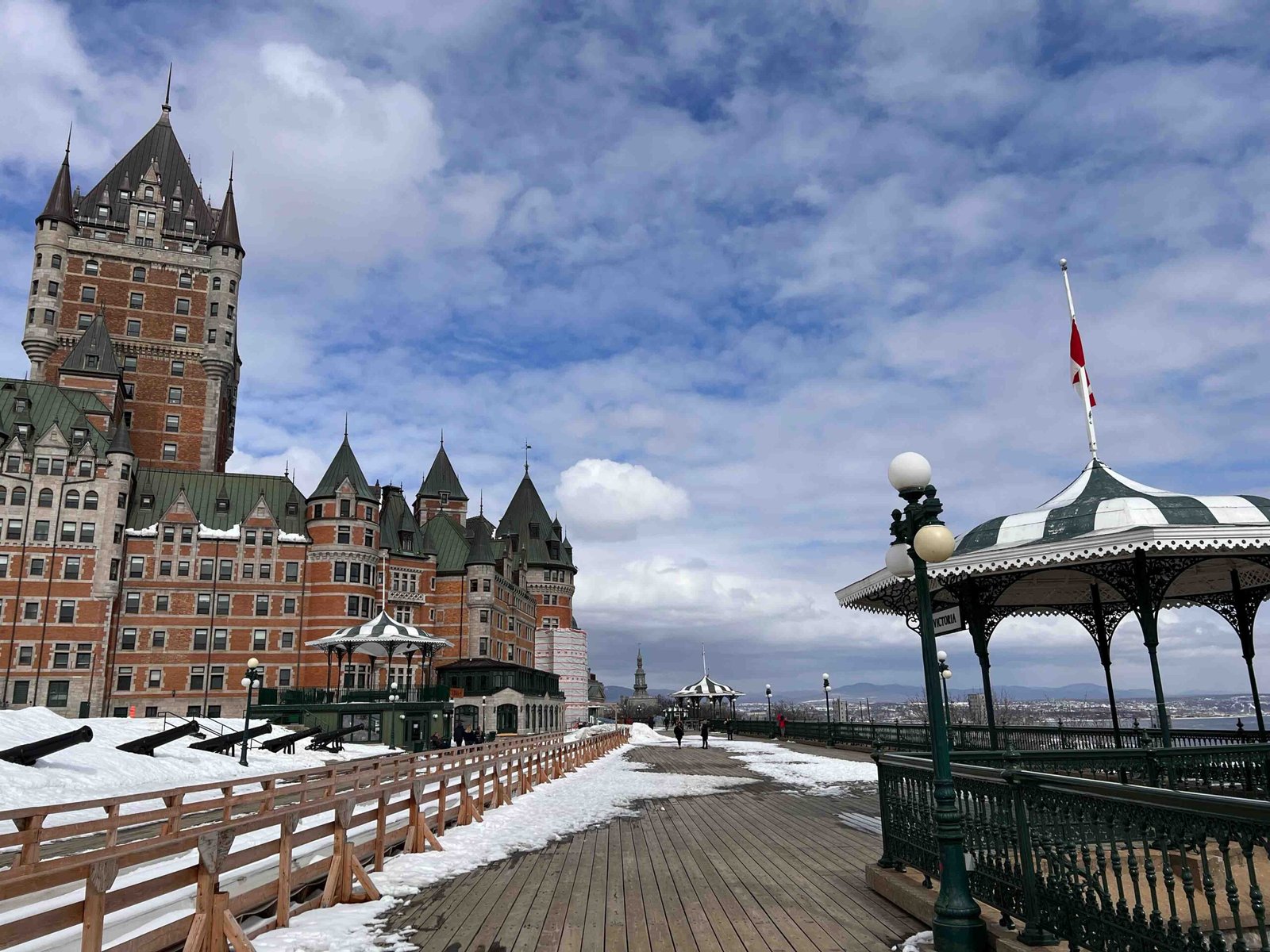As a journalist, it is my duty to inform and inspire curiosity in readers. In this article, we will be exploring the topic of minimum wage in British Columbia, Canada. We will delve into the past, present, and future of this important issue, as well as provide tips and strategies for making the most of your minimum wage. Understanding the basics of minimum wage in British Columbia is essential to navigate this system effectively. Additionally, we will explore the impact of COVID-19 on minimum wage and compare British Columbia’s minimum wage to other provinces in Canada. Join me on this journey as we navigate the complexities of minimum wage in British Columbia.
Understanding the Basics of Minimum Wage in British Columbia
Minimum wage is the lowest amount that an employer is required to pay to their employees for their services. In British Columbia, the minimum wage is set by the provincial government and is reviewed annually to ensure it keeps up with the cost of living. The current minimum wage in British Columbia is $14.60 per hour, as of June 1, 2021. It is important to note that some employees, such as liquor servers and farm workers, have a lower minimum wage due to the nature of their work. The minimum wage is intended to provide employees with a basic standard of living and to prevent employers from taking advantage of their employees. The Employment Standards Act sets out the rules and regulations for minimum wage in British Columbia, including how often employees should be paid and what deductions can be made from their wages. Employers are required to post the minimum wage in a visible location in the workplace so that employees are aware of their rights. Understanding the basics of minimum wage in British Columbia is important for both employers and employees. Employers must ensure they are paying their employees at least the minimum wage, while employees should be aware of their rights and ensure they are being paid fairly for their work.
The Current Minimum Wage in British Columbia
As of June 1, 2021, the current minimum wage in British Columbia is $15.20 per hour. This rate applies to all employees, regardless of their age or industry. However, some specific job categories may have different minimum wage rates. For example, liquor servers have a minimum wage of $15.20 per hour plus tips, while farm workers have a minimum wage of $15.20 per hour for every hour worked.
It is worth noting that British Columbia has one of the highest minimum wages in Canada, second only to Nunavut’s $16.00 per hour. This increase has been gradual over the years, with the most recent change occurring in June 2021 when the minimum wage increased by $0.60 per hour from $14.60 to $15.20.
Employers are required to pay their employees at least the minimum wage rate for each hour worked. Failure to do so can result in penalties and legal action. The government of British Columbia is committed to ensuring that workers receive fair wages and that employers comply with labour standards.
However, some critics argue that even with the current minimum wage rate, it is still difficult for many workers to make ends meet due to the high cost of living in British Columbia. As such, there have been ongoing discussions about raising the minimum wage even further to help address issues of poverty and income inequality.
Overall, while the current minimum wage rate in British Columbia is relatively high compared to other provinces, there is still room for improvement in terms of ensuring that workers can earn a livable wage.
Who is Eligible for Minimum Wage in British Columbia?
In British Columbia, minimum wage is a right for all employees who work in the province, regardless of their job title or industry. This means that both full-time and part-time workers are entitled to receive the minimum wage. However, it’s important to note that some workers may be exempt from receiving the minimum wage, such as liquor servers and farm workers. Liquor servers are subject to a lower minimum wage rate because they typically receive tips as part of their income. As of June 2021, the minimum wage for liquor servers in British Columbia is $15.20 per hour, which is $0.85 less than the regular minimum wage of $16.05 per hour. Farm workers, on the other hand, are exempt from receiving minimum wage because they are covered under a different set of regulations called the Employment Standards Regulation for Farm Workers. This regulation sets out different standards for hours of work, overtime pay, and statutory holidays for farm workers. It’s worth noting that there are some exceptions to these exemptions depending on the specific circumstances of the worker’s employment. Overall, it’s important for workers to know their rights when it comes to minimum wage in British Columbia and to ensure that they are being paid fairly for their work.
The Impact of COVID- on Minimum Wage in British Columbia
The COVID-19 pandemic has had a significant impact on minimum wage in British Columbia. In March 2020, the provincial government announced that the minimum wage would increase by 75 cents to $14.60 per hour on June 1, 2020. However, due to the economic uncertainty caused by the pandemic, this increase was postponed. Instead, the minimum wage remained at $13.85 per hour until June 1, 2021, when it increased to $15.20 per hour. This delay in increasing the minimum wage left many low-wage workers struggling to make ends meet during an already difficult time.
Additionally, many workers in essential industries such as healthcare and grocery stores were deemed as frontline workers during the pandemic. Despite their increased risk of exposure to COVID-19, many of these workers were still earning minimum wage or just slightly above it. The pandemic highlighted the importance of these essential workers and sparked calls for better wages and protections.
Furthermore, the pandemic led to widespread job loss and reduced work hours for many workers, particularly those in industries such as hospitality and tourism. This resulted in a decrease in income for many minimum wage earners who were already struggling to make ends meet. The government responded by introducing emergency financial assistance programs such as the Canada Emergency Response Benefit (CERB) and the Canada Recovery Benefit (CRB) to support those who had lost their jobs or had their hours reduced.
Overall, COVID-19 has had a significant impact on minimum wage earners in British Columbia, highlighting the need for fair wages and protections for essential workers during times of crisis.
How Does British Columbia’s Minimum Wage Compare to Other Provinces?
When it comes to minimum wage, British Columbia is not alone. Other provinces in Canada have their own minimum wage rates, and it’s essential to understand how British Columbia compares. Currently, British Columbia has the highest minimum wage in Canada at $15.20 per hour. This rate is significantly higher than the minimum wage rates of other provinces such as Ontario, Alberta, and Quebec. Ontario’s minimum wage is $14.25 per hour, while Alberta’s minimum wage is $15 per hour. Quebec has the lowest minimum wage rate among all the provinces at $13.50 per hour.
It’s worth noting that some provinces have different minimum wage rates depending on the industry or occupation. For instance, in Ontario, students under 18 who work less than 28 hours a week have a lower minimum wage rate of $13.40 per hour. Similarly, in Alberta, liquor servers have a lower minimum wage rate of $11.90 per hour due to the expectation of earning tips.
The difference in minimum wage rates between provinces can be attributed to various factors such as the cost of living, economic conditions, and political decisions. However, it’s essential to note that a higher minimum wage doesn’t always mean better living conditions for workers. The cost of living varies across provinces, and a higher minimum wage may not necessarily provide a comfortable living standard.
Overall, British Columbia’s current minimum wage rate is higher than most other provinces in Canada. However, understanding the different minimum wage rates across Canada is crucial for workers to make informed decisions about where to live and work based on their financial needs and goals.
The Future of Minimum Wage in British Columbia
The future of minimum wage in British Columbia is a topic of great interest for both employers and employees alike. In June 2021, the British Columbia government announced that the province’s minimum wage would increase to $15.20 per hour on June 1, 2021, marking the final stage of a plan that began in 2018 to gradually raise the minimum wage. However, this is not the end of the conversation around minimum wage in British Columbia. There are ongoing discussions and debates about whether this is a fair and livable wage for workers in the province, especially considering the high cost of living in cities like Vancouver. Some advocates are calling for further increases to the minimum wage, while others argue that higher wages could lead to job losses and economic instability. The pandemic has also highlighted the importance of minimum wage jobs, with many frontline workers risking their health to keep essential services running. This has led to renewed calls for better pay and working conditions for these workers. Overall, it is clear that the future of minimum wage in British Columbia will continue to be a topic of discussion and debate in the coming years, as both employers and employees grapple with the challenges of a changing economy and labour market.
Tips and Strategies for Making the Most of Your Minimum Wage
Making the most of your minimum wage can be challenging, but it is not impossible. Here are some tips and strategies to help you stretch your dollar further. Firstly, budgeting is key. Make a list of all your monthly expenses, including rent, utilities, food, transportation, and any other necessary expenses. Then, compare your income to your expenses and see where you can cut back. This will help you identify areas where you can save money and reduce unnecessary spending. Secondly, consider taking on a side hustle or freelance work to supplement your income. There are many online platforms that allow you to earn extra cash from home. Thirdly, take advantage of any employee benefits that may be available to you, such as health insurance or retirement savings plans. These benefits can help reduce your overall expenses and improve your financial security in the long run. Fourthly, be mindful of your spending habits. Avoid impulse purchases and try to shop around for the best deals on essential items. Finally, don’t be afraid to ask for help if you need it. There are many community resources available to help low-income individuals and families with food assistance, housing support, and financial counselling. By following these tips and strategies, you can make the most of your minimum wage and improve your financial well-being over time.
As we wrap up our exploration of minimum wage in British Columbia, it’s clear that there is much to consider when it comes to this important topic. From understanding the basics and eligibility requirements, to examining the impact of COVID-19 and comparing BC’s rates to those of other provinces, it’s clear that minimum wage plays a significant role in the lives of many British Columbians. Looking ahead to the future, it will be interesting to see how minimum wage rates continue to evolve and what steps will be taken to ensure fair compensation for all workers. As readers reflect on this topic, they may consider their own experiences with minimum wage and how it has impacted their lives. They may also think about ways they can advocate for fair compensation and support policies that prioritize worker wellbeing.
Minimum wage?
Alberta, British Columbia, Manitoba, New Brunswick, Newfoundland and Labrador, Nova Scotia, Ontario, Prince Edward Island, Quebec, Saskatchewan






Pingback: What is Quebec minimum wage? – Things to do in Canada